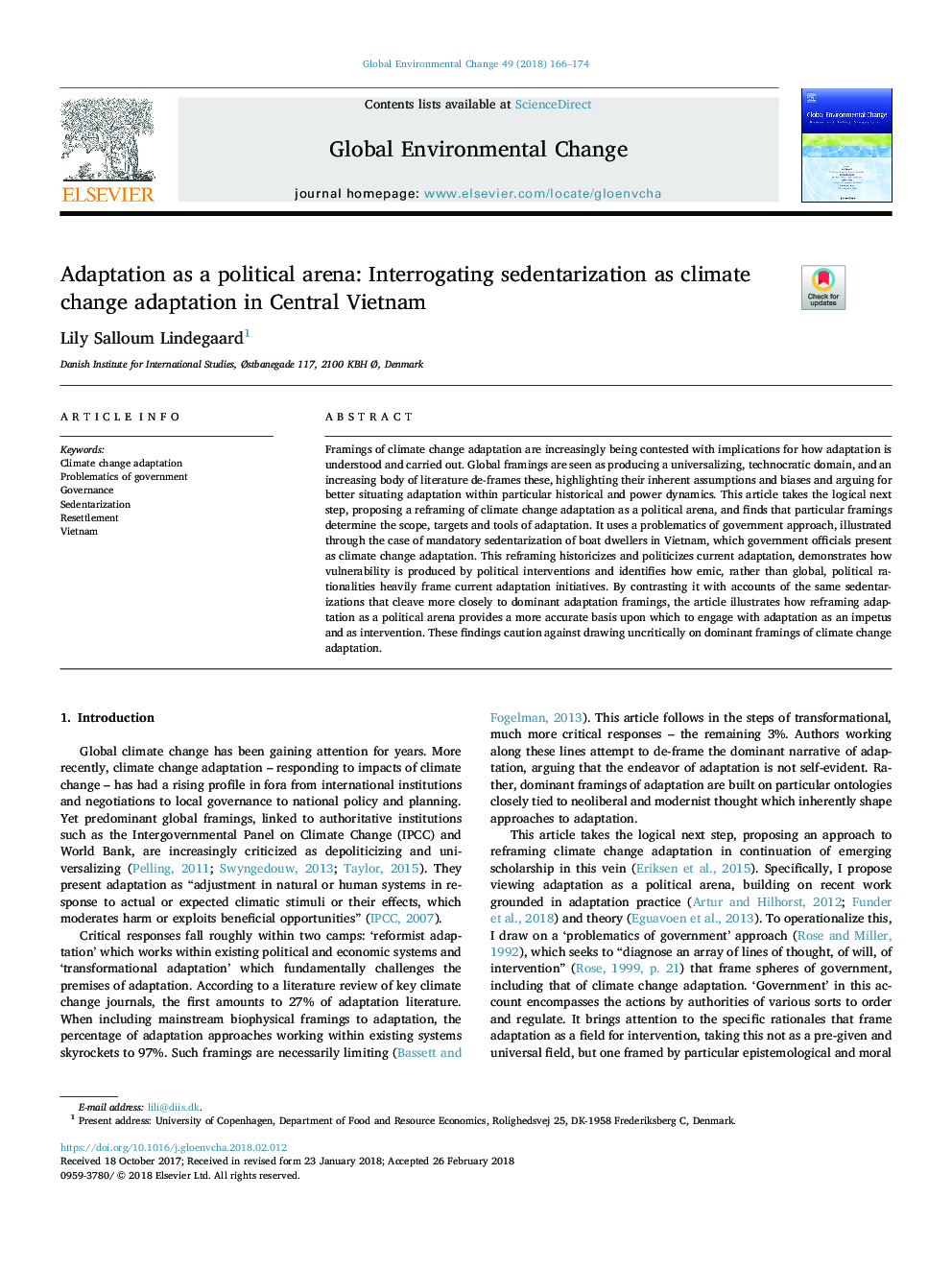| Article ID | Journal | Published Year | Pages | File Type |
|---|---|---|---|---|
| 7469020 | Global Environmental Change | 2018 | 9 Pages |
Abstract
Framings of climate change adaptation are increasingly being contested with implications for how adaptation is understood and carried out. Global framings are seen as producing a universalizing, technocratic domain, and an increasing body of literature de-frames these, highlighting their inherent assumptions and biases and arguing for better situating adaptation within particular historical and power dynamics. This article takes the logical next step, proposing a reframing of climate change adaptation as a political arena, and finds that particular framings determine the scope, targets and tools of adaptation. It uses a problematics of government approach, illustrated through the case of mandatory sedentarization of boat dwellers in Vietnam, which government officials present as climate change adaptation. This reframing historicizes and politicizes current adaptation, demonstrates how vulnerability is produced by political interventions and identifies how emic, rather than global, political rationalities heavily frame current adaptation initiatives. By contrasting it with accounts of the same sedentarizations that cleave more closely to dominant adaptation framings, the article illustrates how reframing adaptation as a political arena provides a more accurate basis upon which to engage with adaptation as an impetus and as intervention. These findings caution against drawing uncritically on dominant framings of climate change adaptation.
Related Topics
Life Sciences
Environmental Science
Environmental Science (General)
Authors
Lily Salloum Lindegaard,
